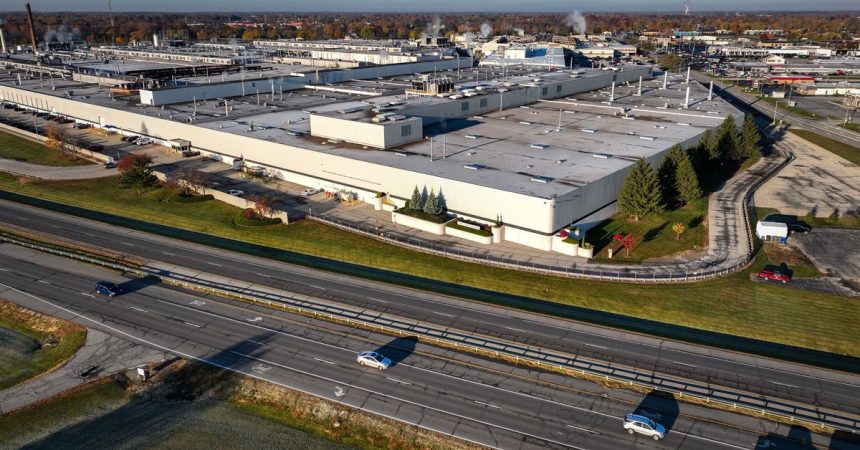The U.S. Department of Energy (DOE) has taken a significant step towards bolstering the electric vehicle (EV) manufacturing sector by conditionally approving a $7.54 billion loan to a joint venture between Stellantis and Samsung SDI. This funding will support the construction of two EV battery plants in Kokomo, Indiana, with the expectation of creating approximately 3,200 jobs in the region. The funded project promises not only job creation at the plants themselves but also an estimated 2,800 operations jobs and hundreds more in a nearby supplier park. The loan creates a pathway for StarPlus Energy LLC—a collaboration between Stellantis and Samsung SDI—, providing $6.85 billion in principal and $688 million in capitalized interest, aimed at solidifying the infrastructure for EV battery production in the United States.
This initiative falls under the DOE’s Advanced Technology Vehicles Manufacturing (ATVM) program, which was revitalized by President Joe Biden in 2022 as part of a broader effort to enhance the EV manufacturing landscape in the country. This effort aligns with the administration’s goals to transition to cleaner energy solutions and address climate change. The latest loan mirrors a $6.6 billion conditional loan recently granted to Rivian, positioning it in a critical timeline. With a change in political leadership potentially on the horizon, there is urgency for these loans to receive final approval before any shifts in policy occur. Donald Trump, who has expressed intentions to reverse significant portions of Biden’s EV spending, may jeopardize these initiatives upon taking office, including dismantling the tax credits for EV purchases and terminating the ATVM loan program.
Historically, the ATVM program has gained a formidable reputation, especially following its pivotal $465 million loan to Tesla in 2009, which played a crucial role in the company’s survival during its formative years. During Donald Trump’s presidency, however, the program fell dormant and left numerous cash-strapped EV startups without necessary funding for growth and innovation. The currently proposed loans signify a resurgence of federal support for EV manufacturers amid a competitive industry landscape, essential for fostering domestic production capabilities that can respond to growing consumer demand for EVs.
The Stellantis-Samsung alliance presents a forward-thinking approach to battery production with plans to manufacture approximately 67 GWh of batteries annually. This capacity translates to the potential supply of around 670,000 vehicles each year once the plants reach their operational peak. Stellantis, which oversees a diverse array of brands—from Jeep, Dodge, and Chrysler to Peugeot and Fiat—is at a pivotal moment. The company is not only pursuing this ambitious project but also grappling with a leadership transition following the announcement of CEO Carlos Tavares stepping down amid declining sales and competitiveness pressures in the market.
The changing dynamics within Stellantis illustrate the challenges faced by traditional automotive manufacturers in adapting to the rapid shift towards electric and software-defined vehicles. With robust plans tied to federal financial backing, it remains crucial for Stellantis to demonstrate its capability to meet production targets and innovate within the emerging EV space, while also addressing the ongoing decline in market performance. The outcome of the loan approval and the company’s adaptations to market pressures will be instrumental in shaping its future amidst a deeply competitive environment.
As the EV market continues to expand and evolve, the urgency for finalizing loans like that for StarPlus Energy becomes increasingly apparent. The looming possibility of a shift in policy direction with a change in presidential leadership introduces uncertainty that could stifle progress in the sector. The conditional approval acts as a beacon of opportunity for not only Stellantis and Samsung SDI but also for the broader American manufacturing ecosystem aiming for a sustainable future through electric mobility. The strategic collaboration, alongside federal incentives, aims to solidify the U.S. position in the global EV market during a pivotal transition to more environmentally friendly vehicles.



